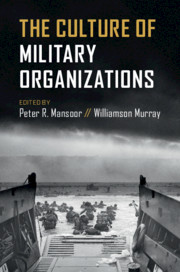What explains combat motivation in warfare? Scholars argue that monitoring, material rewards, and punishment alone are insufficient explanations. Further, competing ideological accounts of motivation are also problematic because ideas are difficult to operationalize and measure. To solve this puzzle, the authors combine extensive information from World War II about German soldiers’ combat performance with data about conditionally exogenous potential exposure to Nazi radio propaganda. They find evidence that soldiers with higher potential exposure to propaganda were more likely to be decorated for valor even after controlling for individual socioeconomic factors, home district characteristics like urbanization, and proxies for combat exposure.
